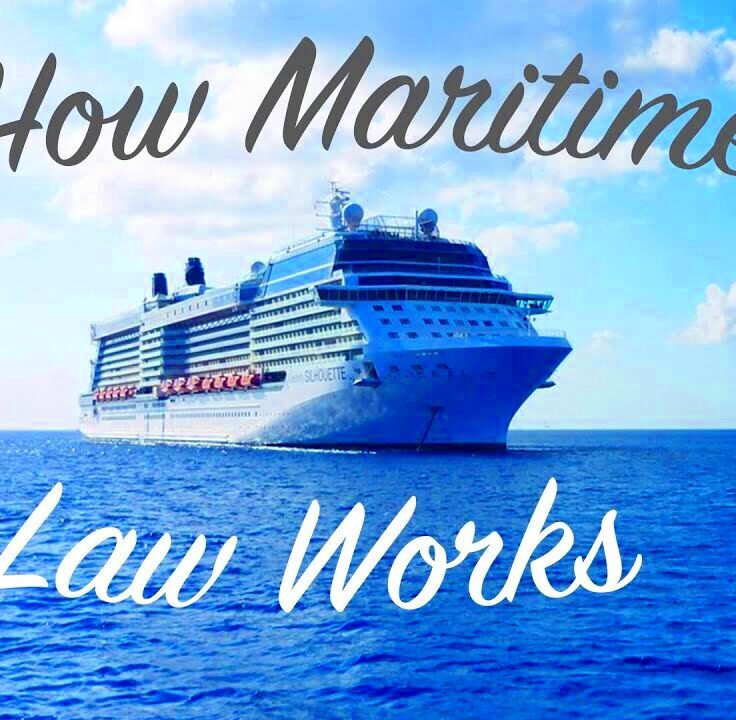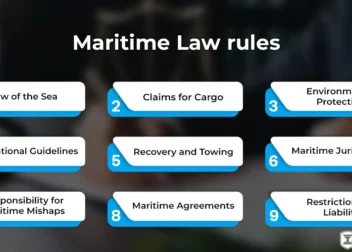How Maritime Law Affects Shipping Taxes
Maritime law, also known as admiralty law, governs activities on the sea. It covers various aspects like shipping, navigation, and marine commerce. This area of law is essential for regulating the rights and responsibilities of those involved in maritime activities. Understanding maritime law is crucial for anyone engaged in shipping and trade, as it affects not just the operations but also the financial aspects, including taxes.
Understanding Shipping Taxes
Shipping taxes are fees imposed on goods transported by sea. They can vary significantly based on different factors such as the type of goods, the route taken, and the jurisdictions involved. Here are some key points about shipping taxes:
- Customs Duties: Taxes imposed on imports and exports.
- Value Added Tax (VAT): A consumption tax levied on the value added at each stage of production or distribution.
- Port Fees: Charges for using port facilities, which can include docking, loading, and unloading fees.
- Environmental Taxes: Fees related to environmental impact, including emissions from ships.
Understanding these taxes is essential for shippers to ensure compliance and avoid hefty penalties. Proper planning can lead to cost savings and efficient operations.
Impact of Maritime Law on Shipping Taxes
Maritime law has a significant impact on shipping taxes in several ways. It sets the framework for how taxes are assessed and collected. Here are some key areas where maritime law influences shipping taxes:
- International Agreements: Maritime law includes treaties that can affect tax rates and obligations across borders. Countries may have tax treaties that influence shipping costs.
- Jurisdictional Issues: Different countries have varying tax regulations. Maritime law helps determine which laws apply when shipping goods internationally.
- Liability and Insurance: Maritime law outlines liability issues that can affect the costs associated with shipping. Understanding these laws can help businesses navigate their insurance needs effectively.
- Dispute Resolution: Maritime law provides mechanisms for resolving disputes related to shipping taxes, ensuring that shippers can address issues efficiently.
In summary, a solid grasp of maritime law can help shipping companies manage their tax liabilities more effectively, ensuring compliance while optimizing costs.
Types of Shipping Taxes Influenced by Maritime Law
When it comes to shipping goods across borders, several types of taxes come into play. Maritime law significantly influences these taxes, shaping how they are applied and collected. Here are the primary types of shipping taxes you should be aware of:
- Import Duties: These are taxes levied on goods brought into a country. The rates can vary based on the type of product and the country of origin. Maritime law helps define how these duties are calculated.
- Export Duties: Some countries impose taxes on goods leaving their borders. While not as common as import duties, they can affect trade dynamics.
- Value Added Tax (VAT): This tax is charged on the sale of goods and services at each stage of production or distribution. For shipping, VAT may apply depending on the country’s regulations.
- Environmental Levies: With increasing focus on sustainability, some jurisdictions impose taxes based on the environmental impact of shipping activities. These could include emissions taxes or fees related to waste disposal.
- Port Charges: These fees are charged by port authorities for the use of port facilities. They can vary significantly based on location and services provided.
Each of these taxes has its own rules and exemptions, influenced by maritime law and international agreements. Therefore, it’s essential for businesses to stay informed about how these taxes affect their shipping costs.
International Shipping and Maritime Law Considerations
International shipping can be a complex arena, with various regulations and laws affecting how businesses operate. Maritime law plays a crucial role in shaping these regulations. Here are some key considerations:
- Jurisdiction: When shipping internationally, determining which country’s laws apply can be tricky. Maritime law helps establish jurisdiction, which can affect everything from liability to tax obligations.
- Trade Agreements: Many countries enter into trade agreements that influence tariffs and taxes. These agreements can simplify processes and reduce shipping costs.
- Documentation: Accurate documentation is crucial in international shipping. Maritime law requires certain documents, such as bills of lading, which serve as proof of ownership and transport.
- Insurance Requirements: Different countries may have varying insurance requirements for maritime activities. Understanding these laws can help businesses ensure they are adequately covered.
- Dispute Resolution: Maritime law provides frameworks for resolving disputes between parties involved in international shipping. Knowing these options can save time and resources in case issues arise.
Being aware of these considerations can help businesses navigate the complexities of international shipping and maritime law effectively.
Compliance and Legal Obligations in Shipping Taxes
Compliance with shipping tax laws is crucial for any business engaged in maritime activities. Non-compliance can lead to severe penalties, including fines and delayed shipments. Here are some essential legal obligations to keep in mind:
- Tax Registration: Businesses must register for tax purposes in the jurisdictions where they operate. This may include obtaining necessary permits or licenses.
- Accurate Record Keeping: Maintaining detailed records of all shipping transactions is vital. This includes invoices, shipping documents, and tax returns, as these can be audited by tax authorities.
- Timely Tax Payments: Shipping taxes must be paid promptly according to the established deadlines. Delays can result in penalties and interest charges.
- Understanding Exemptions: Some goods may be exempt from certain shipping taxes. Understanding these exemptions can lead to significant cost savings.
- Regular Training: Keeping staff updated on changes in maritime law and tax regulations is essential. Regular training can help ensure compliance and minimize risks.
In summary, staying compliant with shipping tax laws is not just a legal obligation; it’s also a smart business strategy that can save time and money.
Future Trends in Maritime Law and Shipping Taxes
The landscape of maritime law and shipping taxes is constantly evolving. As global trade grows and environmental concerns rise, several trends are emerging that could shape the future. Here are a few key trends to watch:
- Digitalization: The maritime industry is embracing technology, with blockchain and AI playing significant roles. These technologies can streamline processes, improve transparency, and enhance compliance with tax regulations.
- Environmental Regulations: With the push for sustainability, expect stricter environmental laws that may impose new taxes on carbon emissions and waste disposal. Companies will need to adapt their practices to meet these regulations.
- Tax Harmonization: As global trade increases, there may be efforts toward harmonizing tax regulations across countries. This could simplify compliance for businesses operating internationally.
- Focus on Cybersecurity: With increased digitalization, protecting sensitive information will become paramount. Maritime law may evolve to address new cybersecurity threats in shipping.
- Changes in Trade Agreements: Geopolitical shifts can lead to new trade agreements that may impact shipping taxes. Staying updated on these changes is crucial for businesses.
By keeping an eye on these trends, businesses can better prepare for the future and adapt to changes in maritime law and shipping taxes.
FAQ about Maritime Law and Shipping Taxes
Here are some frequently asked questions that can help clarify common concerns about maritime law and shipping taxes:
- What is maritime law? Maritime law governs activities related to shipping, navigation, and marine commerce, outlining the rights and responsibilities of parties involved.
- How do shipping taxes work? Shipping taxes vary by jurisdiction and can include import duties, VAT, and environmental levies. Businesses must understand their obligations to comply.
- What is the impact of international agreements on shipping taxes? International agreements can influence tax rates and obligations, simplifying compliance for businesses engaged in global trade.
- Are there penalties for non-compliance with shipping taxes? Yes, non-compliance can lead to fines, delayed shipments, and potential legal issues, making it crucial for businesses to stay compliant.
- How can businesses stay updated on maritime law changes? Regular training, industry publications, and legal consultations can help businesses remain informed about changes in maritime law and shipping taxes.
Conclusion on the Importance of Understanding Maritime Law in Shipping Taxes
In conclusion, grasping the fundamentals of maritime law and shipping taxes is essential for any business involved in international trade. As the industry faces rapid changes due to technology, environmental concerns, and evolving regulations, having a solid understanding of these topics can provide a competitive advantage. By staying informed and compliant, businesses can navigate the complexities of shipping more effectively, reduce risks, and optimize costs. Ultimately, understanding maritime law isn’t just about legal compliance—it’s about ensuring smooth operations and fostering successful trade relationships in a globalized economy.


